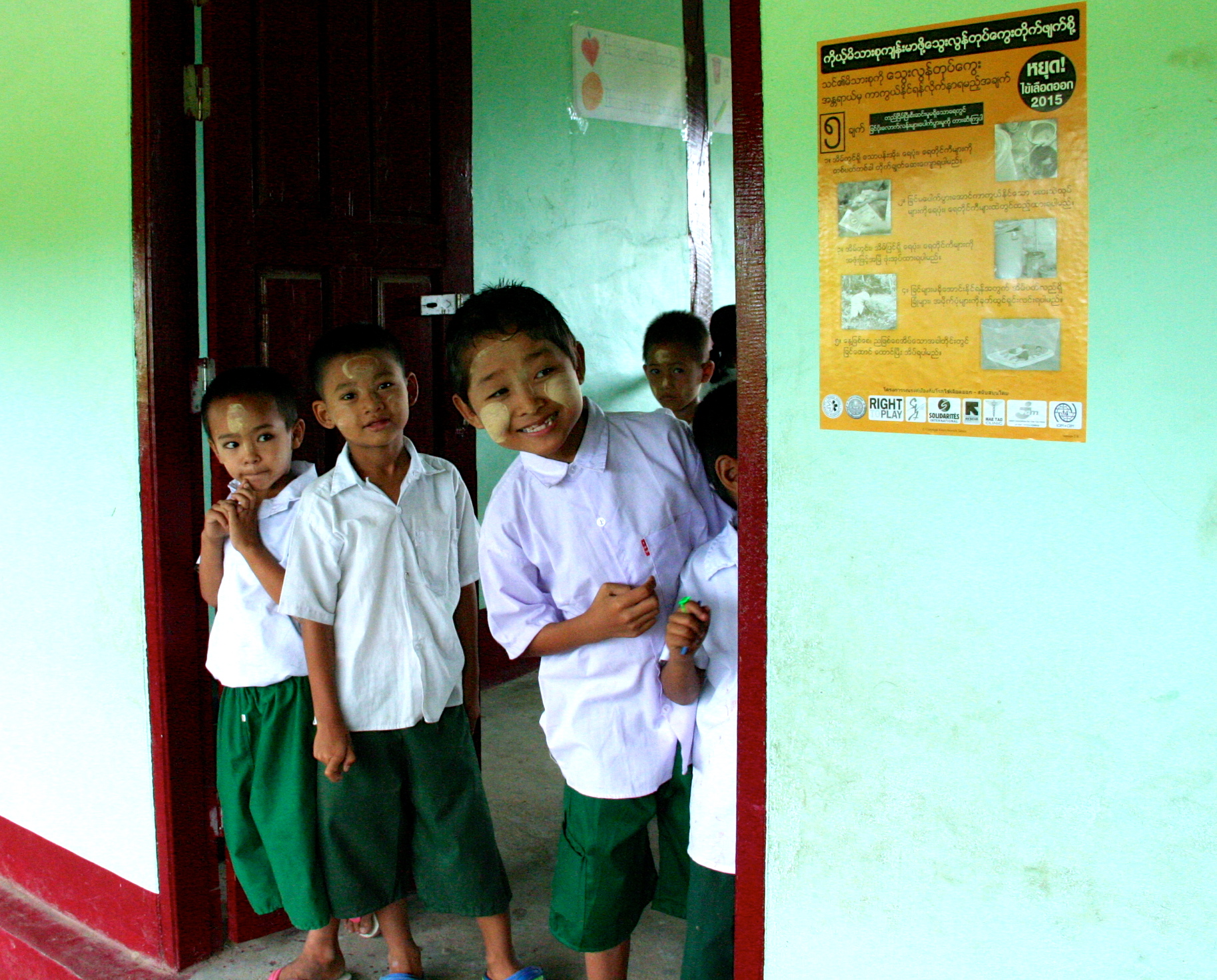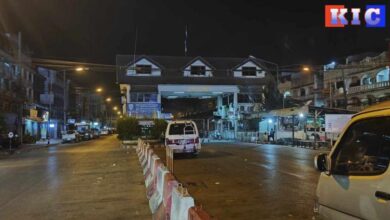Border School Fights To Protect Its Students From Dengue Fever

Dengue fever outbreaks on the Thai Burma border have affected hundreds of students, with many having to be hospitalized.
Heavy wet season rains that drench communities on both sides of the Thai Burma border, are an early warning sign that it is the time of year that dengue fever strikes.
Health Ministries from both countries have released statistics in recent weeks that show a sharp rise in the number of people infected with dengue. Death rates have also risen – Thailand reports that 21 people have died, Burma’s state-owned-media, have reported the number at “more than 40.”
A teacher at Mae Wah Khee School explained to Karen News how they plan to try to stop their students from getting infected by dengue.
“Every Friday, we do a big cleanup together, students and teachers, to try to prevent mosquitos laying eggs and to kill their larvae. This [wet] season, we put chemical larvicide sand in the school water storage containers and in under the roof or on the ground where little water ponds can form.”
The Mea Wah Khee School is on the Burma side of the Moei River that separates it from Thailand. The small road that links the school to the river has turned to mud after a heavy rainstorm. Wind ripples across fields of green corn near the school and rustles its way through the school garden and its small trees.
Despite the rain and wind, Mae Wah Khee School is neat and tidy. Students wearing white tops and green uniform can be seen studying in classrooms.
Mae Wah Khee School teacher has taught at the School for three years, she smiles and says,
“I am proud of this school and our students.”
She worked for 26-years as a schoolteacher in Burma and has taught at a Migrant Learning Center for two years before she moved to Mea Wah Khee School in 2012.
Her voice takes on a serious tone as she discusses the affect of dengue fever on her students.
“We have 158 primary students under 4-Grade (under 10 years old) and 108 students under 10-Grade (under 18 years old). We have many experiences about dengue. Already three students have dengue fever. If a student has the fever, we bring them to the Mae Wah Khee Clinic near the school – we rely on the clinic for help.”
Burma’s Ministry of Health estimates that Karen State, as of the 30th June, has had 14 cases of dengue. Health workers explained to Karen Newsthat these figures are likely to be much higher.
The government owned newspaper, The New Light of Myanmar, reported on the 29th June, that the country’s Ministry of Health had recorded “more that 10,000 cases” of the life-threatening Dengue Hemorrhagic Fever and “more than 40 deaths.”
The teacher explains the procedure that her school goes through if a student has contracted dengue fever.
“We bring the student to the Mae Wah Khee Clinic, that is near the school. I have been acting as the health teacher when the students get injured or sick, as we don’t have a trained school health teacher yet.”
The Mae Tao Clinic’s, School Health Unit visited the Mae Wah Khee School to give dengue information to the students on Tuesday, 30th June. San Myint Htun, a medic at MTC, explained to the 150 students and their teachers how to protect themselves from dengue fever.
San Myint Htun told Karen News that, “in the rainy season, many children get severe dengue fever and have to see a doctor in Myawadee [Burma] or Mae Sot [Thailand].”
San Myint Htun said he expects this year to be a high-risk year for dengue outbreaks in the border areas.
The small Mae Wah Khee Clinic is a 10-minute walk from the school. New signs hang bright in front of the clinic. Inside, staff carry out basic medical examinations and physical assessments and rely on simple medical kits and basic medicines.
Saw Dah, a medic at Mae Wah Khee Clinic told Karen News that he has worked there for a year.
“If severe [dengue] cases happen, patients need to stay at the clinic. We were trained by MTC and if we get dengue or other cases of disease at the school or in the village, we report to MTC and the Burma Medical Association.”
The BMA has supported the clinic with medicine since 2014 and it is run by a medic and two community-health-workers who treat as many as 70 cases a month.




